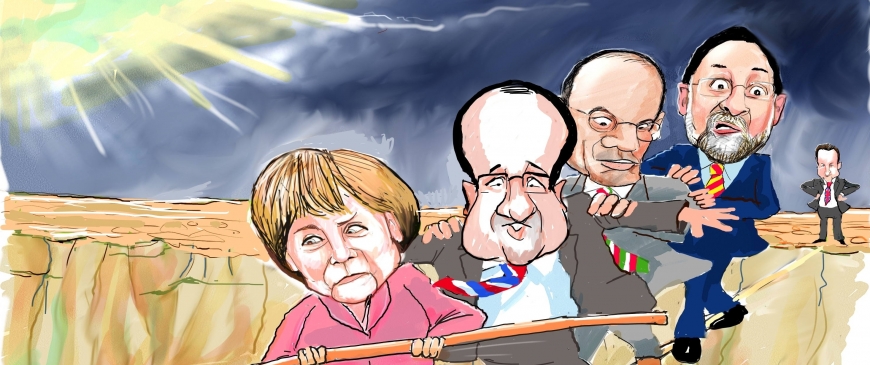
Eurozone fails to cheer recovery
"What is surprising is that [instead of protecting debtor nations] the European Commission has assumed the role of agent of the creditor nations in the eurozone, pushing austerity as the instrument to safeguard the interests of the creditor nations," he says.
George Magnus, UBS’s former chief economist, says a "symmetric” macroeconomic adjustment is needed that implies states such as Germany adopt a more expansionary policy. There also needs to be rapid progress towards a banking union, including joint liability for banks, to sever the link between weak banks and weak sovereigns.
Europe might well muddle through, he says, but the combination of the debt crisis, productivity shortcomings, and ageing populations have produced “the most significant threats to the European economy and the legitimacy of its institutions since the 1930s".
Holger Schmieding, chief economist at Berenberg bank, takes an optimistic view, seeing the absence of automatic transfers between economies as an advantage. Since member states cannot devalue or inflate their way out of trouble, they have had to make tough reforms that will eventually make them stronger.
While the big picture is open to multiple interpretations, there are immediate concerns in getting the economy going again. A large part of the puzzle is unblocking weak credit flows from banks into the economy.
With ECB supervision of the biggest banks on the horizon, Mr Draghi is clear that he expects improvement. "We have strong hopes that credit will recover before [next October]," he says. "We would be in very bad shape if credit were not to recover by then."
